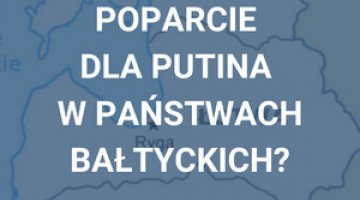Lithuania: new Social Democrat government
On 25 September, the Lithuanian parliament (Seimas) swore in the government led by Social Democrat Inga Ruginienė and approved its agenda. The new cabinet is supported by a coalition of three parliamentary groups: the Social Democratic Party (LSDP), which has governed since the 2024 elections; the nationalist Dawn of Nemunas (PPNA), accused of antisemitism; and a bloc comprising the agrarian Lithuanian Farmers and Greens Union (LVŽS) and the Electoral Action of Poles in Lithuania – Christian Families Alliance (AWPL–ZChR), formerly in opposition. The coalition holds 82 out of 141 seats in the Seimas (52 MPs from LSDP, 19 from PPNA, and 11 from the joint LVŽS and AWPL–ZChR group). In the new government, the Social Democrats took nine of the 14 ministerial positions, LVŽS and AWPL–ZChR two, and PPNA three.
Gintautas Paluckas, the Social Democrat who had headed the cabinet since the elections, resigned in August due to allegations of a conflict of interest. LSDP then withdrew from its coalition with the Union of Democrats ‘For Lithuania’ (DSVL) and invited LVŽS and AWPL–ZChR to join the government colaition. With the Democrats removed from power, their leader Saulius Skvernelis lost his post as Speaker of the Seimas and was replaced by the seasoned Social Democrat MP Juozas Olekas, who had served as minister of health and minister of national defence.
Ruginienė had previously served as minister for social security and labour. Both the composition of her cabinet and its agenda suggest that it will continue the left-leaning, socially oriented policies of the Paluckas government. The new prime minister has made a number of populist promises that she may fail to deliver by the 2028 elections. The main destabilising factor, which could lead to the coalition’s collapse, is likely to be the tensions generated by PPNA’s presence within it.
Commentary
- Social policy and national security will continue to be the priority areas for the Lithuanian government. The goals of national security include stable defence funding, fulfilling the commitment to raise the defence budget to 5% of GDP, strengthening border protection and maintaining support for Ukraine. In foreign policy, a key objective will be the normalisation of diplomatic relations with China, with an approach modelled on the policies of other EU member states towards Beijing. The cabinet intends to combat poverty, index pensions, increase social benefits, and raise public sector salaries. It also aims to support young families, improve access to healthcare, reduce the role of private providers, and ensure affordable heating for households. The prime minister has also pledged to improve road infrastructure. Ruginienė was unable to answer questions on how these promises would be funded, particularly as the government does not plan to introduce new taxes, apart from raising excise duties on substances such as tobacco and alcohol.
- The new cabinet is dominated by the Social Democrats, but President Gitanas Nausėda has managed to retain significant influence. He ensured that Kęstutis Budrys – his former foreign policy adviser – remained in post as foreign minister, ensuring smooth cooperation in the implementation of foreign policy, an area of shared responsibility between the president and the government.
- President Nausėda also pushed through the reappointment of the non-partisan Žygimantas Vaičiūnas as Minister of Energy. His role is to ensure the continued development of Lithuania’s energy independence and self-sufficiency. The move was also intended to prevent PPNA’s Remigijus Žemaitaitis – who, under the coalition agreement, was due to take over the ministry – from gaining control of key energy companies vital to the national economy. In the president’s view, representatives of this party cannot be relied upon to protect the public interest. In addition, an investigation is underway into PPNA’s financing, and its leader is currently on trial for inciting hatred against Jews and denying the Holocaust. Nausėda succeeded in exposing the party’s political weakness when it failed to present a non-partisan candidate for the energy portfolio. Following a portfolio swap with the Social Democrats – the Ministry of Culture in exchange for the Ministry of Energy – PPNA nominated Žemaitaitis’s relative, Ignotas Adomavičius, as Minister of Culture. Although a graduate of an art school, Adomavičius is a food producer by profession. The president approved his nomination solely to bring the protracted government formation process to a close within the constitutional deadline. However, this nomination sparked outrage in artistic circles and drew protests from the Jewish community. The latter expressed concern that a PPNA representative could hamper the development of institutions dedicated to commemorating Jewish history in Lithuania.
- The way Ruginienė’s cabinet was formed revealed the president’s increasing trust in representatives of the Polish minority, who have been entrusted with two ministerial positions in the new government. Władysław Kondratowicz, formerly affiliated with AWPL–ZChR and now a Social Democrat, has retained his position as Minister of the Interior, which he held under the Paluckas government. Another member of the cabinet is AWPL–ZChR representative Rita Tamašunienė, who previously headed the Ministry of the Interior in the Skvernelis government and will now serve as Minister of Justice. President Nausėda emphasised that AWPL–ZChR members such as Tamašunienė are capable of acting independently of the party’s leader, Waldemar Tomaszewski, and do not identify with his radical views, which the president considers pro-Russian. This stance can be seen as an encouragement for members of the Polish minority to further distance themselves from Tomaszewski and his political views.
APPENDIX. The new Prime Minister’s biography
Inga Ruginienė (born 1981) holds a degree in public health and has also studied forestry. In 2022, she obtained a master’s degree in labour law. A significant part of her professional career has been linked to the Federation of Lithuanian Forest and Wood Industry Workers’ Trade Unions, and later to the Lithuanian Trade Union Confederation, which she began leading in 2018. She also served as Vice President of the European Region of the International Trade Union Confederation. Ruginienė entered politics only in 2024, when she was elected to Parliament for the first time, running on the Social Democratic Party (LSDP) list. Following the elections, Gintautas Paluckas appointed her Minister of Social Security and Labour. After his resignation, the LSDP executive board selected her as the party’s nominee for Prime Minister.
Ruginienė is not the leader of the Social Democrats – that position is held by Mindaugas Sinkevičius, who played the leading role in coalition negotiations. The opposition has criticised the new Prime Minister for her lack of political experience. This was reflected in the protracted 30-day government formation process and her reliance on prompts from ministerial candidates while presenting her agenda in the Seimas. Revelations that Ruginienė had travelled to Moscow in 2015 and 2018 – after Russia’s annexation of Crimea – to visit distant relatives on her grandmother’s side caused surprise among the public. In response, she explained that her family had been separated during the Soviet era, with some relatives remaining in Ukraine and others emigrating to Russia. The Prime Minister has since stated that she supports Kyiv and will continue to do so until Ukraine achieves victory.
Composition of the Ruginienė Government
Social Democratic Party’s nominees:
Ministry of Foreign Affairs – Kęstutis Budrys
Ministry of the Interior – Władysław Kondratowicz
Ministry of Defence – Dovilė Šakalienė
Ministry of Energy – Žygimantas Vaičiūnas
Ministry of Finance – Kristupas Vaitiekūnas
Ministry of Social Security and Labour – Jūratė Zailskienė
Ministry of Transport and Communications – Juras Taminskas
Ministry of Health – Marija Jakubauskienė
Ministry of Education, Science, and Sport – Raminta Popovienė
Dawn of Nemunas nominees:
Ministry of the Environment – Kastytis Žuromskas
Ministry of Culture – Ignotas Adomavičius
Ministry of Agriculture – Andrius Palionis
Nominees of the Lithuanian Farmers and Greens Union (LVŽS) and the Electoral Action of Poles in Lithuania – Christian Families Alliance (AWPL–ZChR):
Ministry of the Economy and Innovation – Edvinas Grikšas
Ministry of Justice – Rita Tamašunienė





